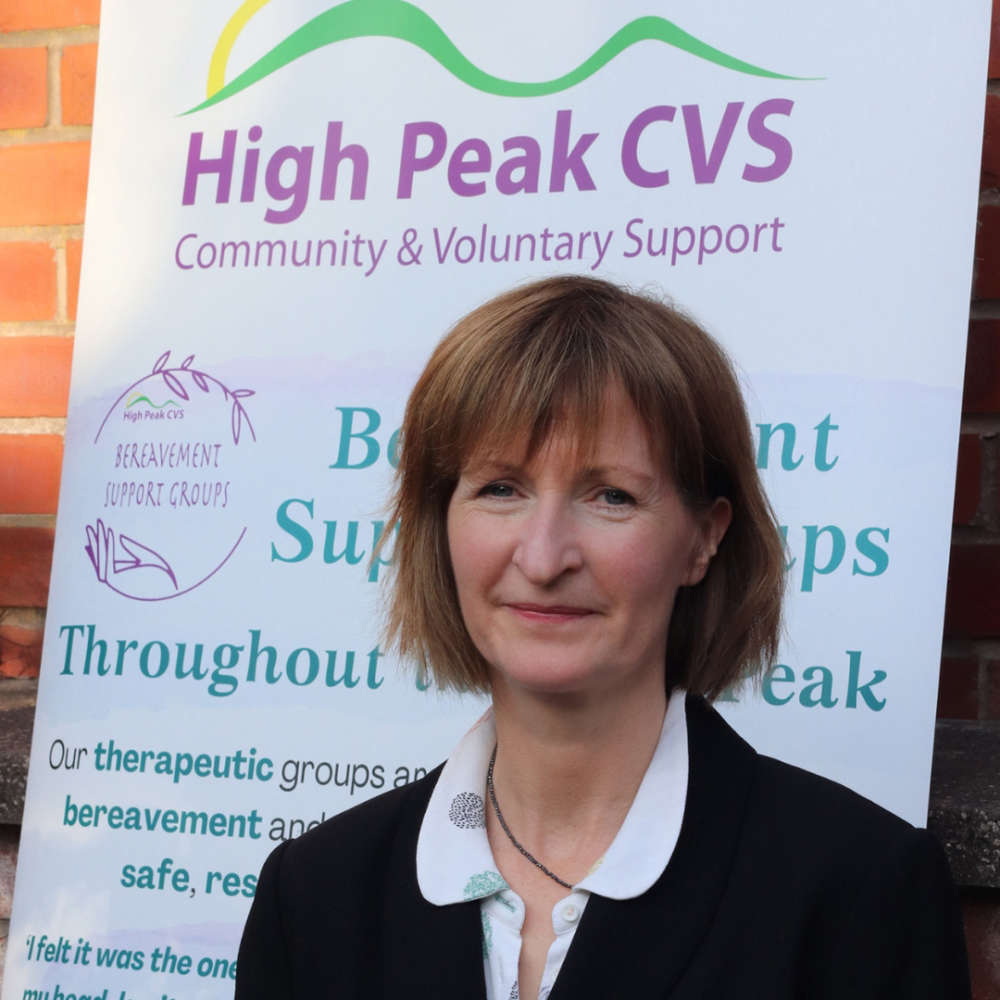
Losing someone you love is one of life’s hardest experiences - and finding support can feel impossible.
That’s exactly why the High Peak CVS Bereavement Groups have been such a lifeline for adults across the High Peak since 2018.
The first group was set up in Glossop, after a consultation with bereaved people, hospices, churches, hospital chaplains, social care, and funeral homes revealed a simple but powerful truth: people wanted a space where they could feel less alone, share their feelings, and connect with others who truly understand.
Since then, the service has grown to include six groups: daytime and evening sessions in Glossop, a daytime group in Chapel-en-le-Frith, daytime and evening sessions in Buxton, and a group in Hope Valley.
Liz Fletcher the service lead, an experienced and qualified counsellor who is passionate about bereavement support, explains the importance of talking about grief:
“Death and grief are not a conversation most people want to have - but it’s one we must. Talking about it helps people connect, receive real support, beyond clichés. I consider it such a privilege to support people in their grief.”
The groups focus on the shared experience of bereavement, covering the huge life changes, struggles, and emotions that come with significant loss. They follow a person-centred peer support model, with qualified facilitators ensuring that everyone is included, respected and gently encouraged to explore their individual expression of grief in a safe and confidential environment. Sharing and listening encourages mutual understanding, acceptance of feelings and the realisation that it’s okay to feel anger, sadness, or even find moments of humour in the midst of grief.
Sessions run for 90 minutes, in small groups of up to ten people, every fortnight. While friendships outside the group are welcomed, the sessions are therapeutic and focused on grief work, not social meet-ups.
People can attend as many sessions as they need - one, ten or even a hundred - so they have control over their support rather than being limited by a set course that ends before they are ready. When someone decides to move on from the group, a one-to-one exit interview ensures the service is always listening and responding to the clients.
Liz describes the remarkable diversity of participants “In the last 12 months, the youngest person to attend was 20 and the oldest was 90. They supported each other, and it was so special to see that connection. Witnessing people come together in this way, whilst each person is trying to navigate their own pain, is incredibly moving.”
Families and attendees alike have felt the difference the groups make. A daughter whose father benefitted from the Glossop group said:
“We are so grateful that Dad had a place where he could be honest about his feelings without worrying about upsetting us. He said hearing from others in his situation made him feel less alone, and we were so relieved that he was being supported. It’s not something that we ever thought Dad would attend, but we encouraged him to give it a try and from the first session he said it helped. He’ll never fully get over losing mum, but he can now carry on with his life in a calmer, more in-control way. As a family grieving ourselves, we would have struggled without the support of the group.”
Another participant reflected:
“They understood me, so I was not abandoned alone in my grief. Listening is so important, yet so rare, and this service has been a lifeline.”
The service is free, thanks to National Lottery funding, which will run until 2027, and attendance is by referral - people can refer themselves, family members or friends. GP surgeries and other organisations can also signpost and make referrals. Occasionally there may be a waiting list, but everyone is encouraged to get in touch.
Liz emphasises the importance of the safe, accepting space the groups provide:
“This is often the only place someone can truly say what they’re feeling, for example expressing anger is okay, it’s part of grief, but people might not be able to show that to their family for various reasons. Nothing about grief is unacceptable to share here.”
Behind the scenes, the groups rely on carefully selected volunteers who are suited to the sensitive nature of the work. All volunteers undergo rigorous interviews and DBS checks to ensure they are in a strong emotional place to be around others who are struggling, with their main role being to support the facilitators practically. Liz encourages anyone who feels drawn to this type of work to contact them.
Many have testified that the High Peak CVS Bereavement Groups are a true lifeline to the community. As a small charity they are currently focusing on ensuring that their vital service continues beyond the end of funding in 2027, and warmly welcome donations and sponsorship from individuals and organisations to sustain the groups, to cover essential expenses such as DBS checks and venue hire.
A recent independent evaluation concluded: “The High Peak Bereavement Support Service offers a proven and cost-effective way to address the pressures and challenges of bereavement. The model offers a proven approach to help both individuals and communities.”
Liz sums up why the work is so important:
“Talking about death and grief is still seen as taboo, but it shouldn’t be. By supporting people openly and compassionately, we can help them feel less isolated, more understood and more able to carry on with their lives, while still honouring and celebrating their loved ones.”
For more information, call 01663 735350, email: bereavement@highpeakcvs.org.uk, scan the QR code below or visit www.highpeakcvs.org.uk
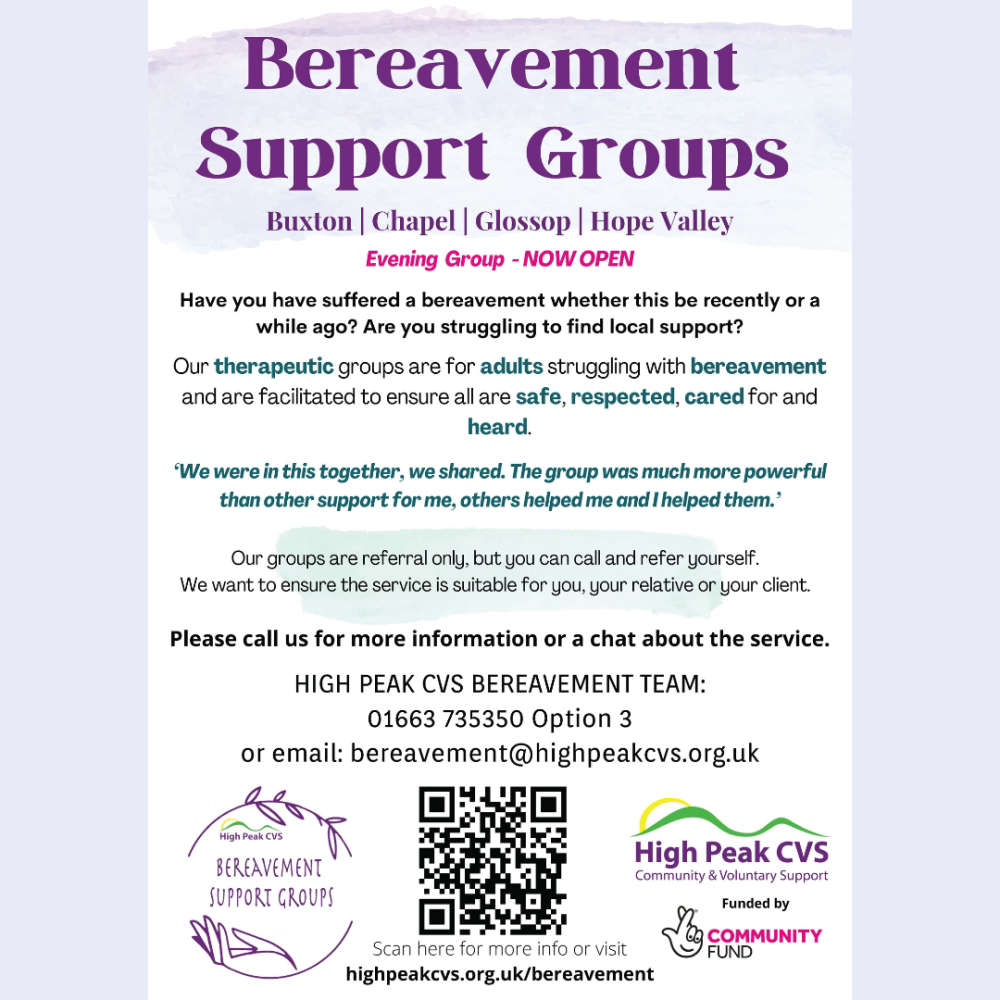
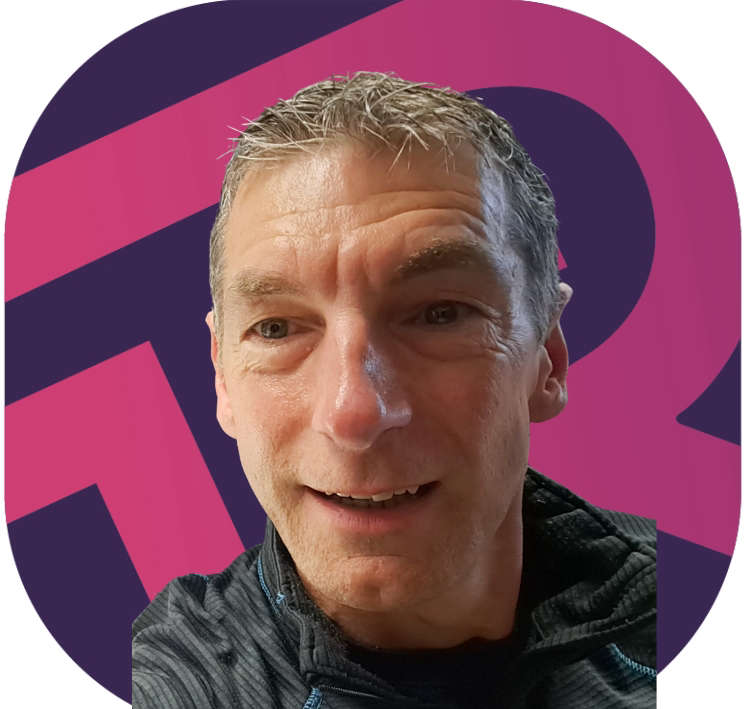

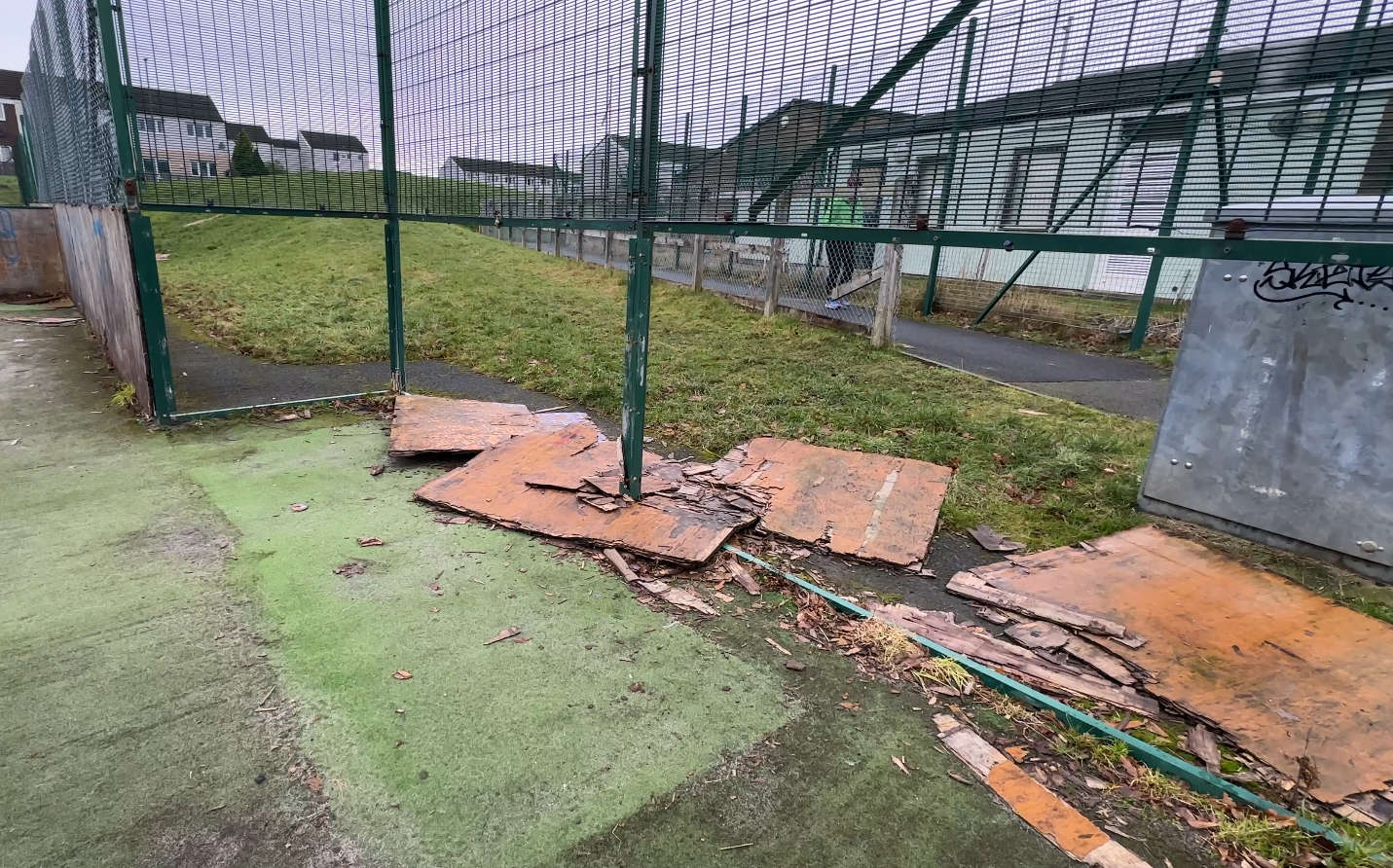 Gamesley Community Centre gears up for major sports revamp
Gamesley Community Centre gears up for major sports revamp
 Derbyshire County Council notes rise in youth drug treatment
Derbyshire County Council notes rise in youth drug treatment
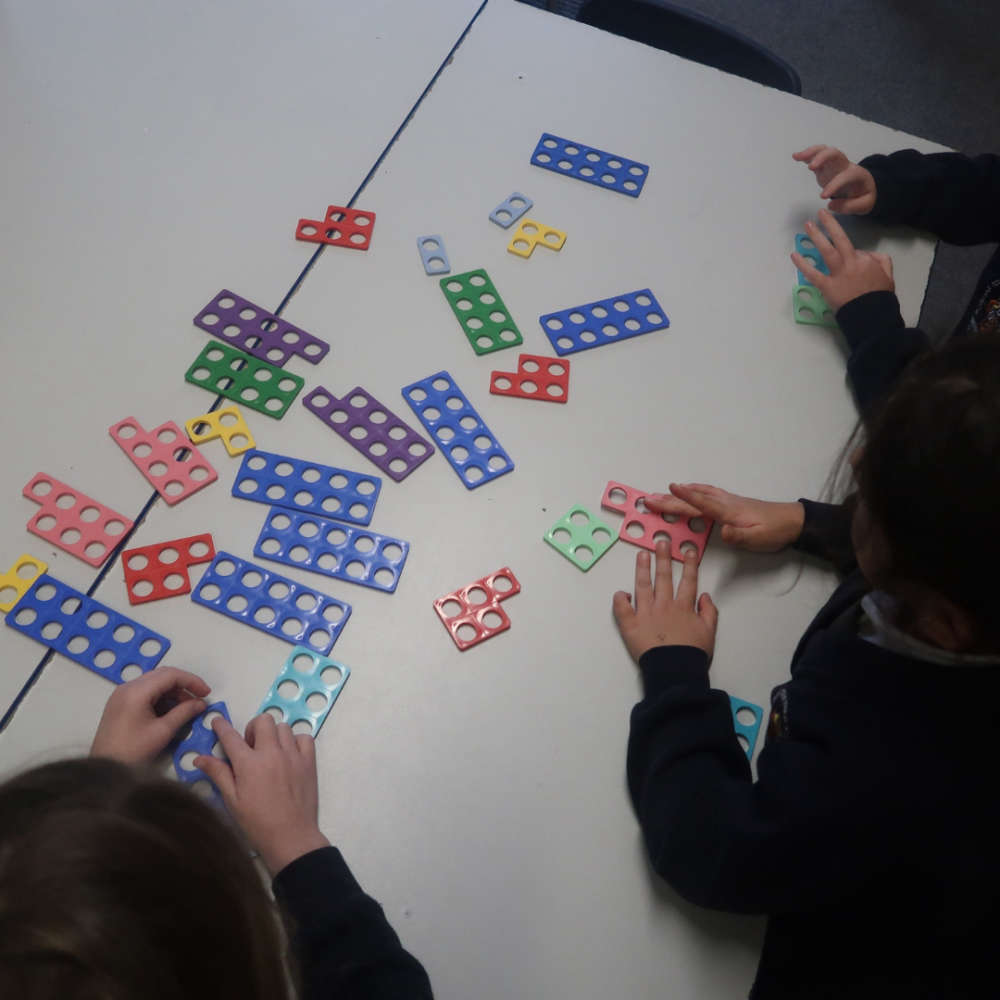 School’s maths excellence adds up
School’s maths excellence adds up
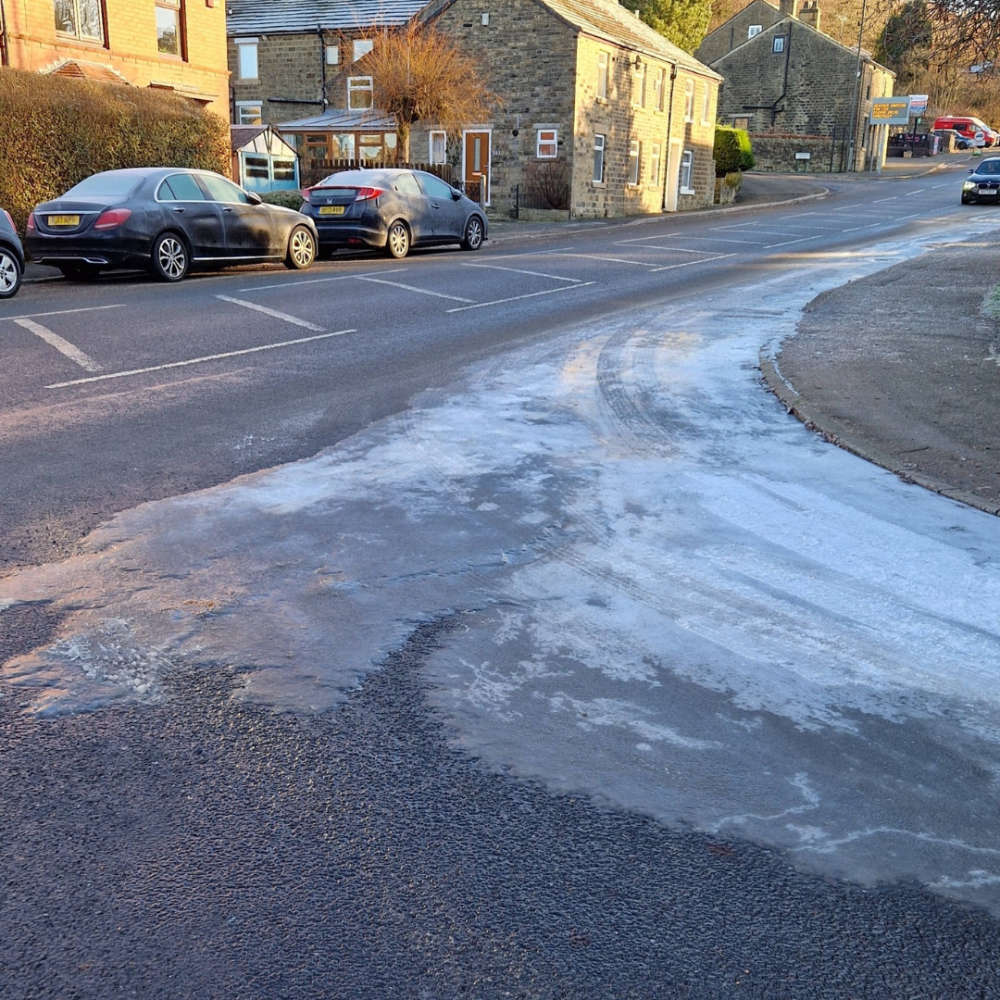 Concerns over "ignored" blocked gullies being “an accident waiting to happen"
Concerns over "ignored" blocked gullies being “an accident waiting to happen"


